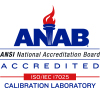
Behind every great business or laboratory, there’s at least one great facilities engineer. Facility engineers are responsible for the overall functionality and operation of the buildings at which they work and the complex systems within them including electricity and HVAC.
If that sounds like a lot of responsibility, it is! Here are just a few of the toughest challenges that define the facilities engineering profession:
Creating a Safe Environment
When it comes to facilities engineering, the old expression “safety first” holds true. Facilities engineers are responsible for ensuring all Department of Labor Occupational Safety and Health Administration (OSHA) standards are upheld at their workplace in addition to other state and local safety requirements. Engineers are often also expected to teach that information forward to colleagues to ensure a consistent, facility-wide knowledge base.
Guiding safety in the workplace means that facilities engineers also regularly check all equipment and systems throughout the building to verify that they are operating as intended. Flaws or malfunctions in electrical, HVAC or mechanical equipment can all lead to significant human injury or death, so a good facilities engineer never uses the “eyeball test” to monitor his or her workplace. Instead, facilities engineers must establish a monitoring schedule and verification protocol to ensure worker safety at all times.
Maintaining an Energy Efficient Facility
If safety is the facilities manager’s greatest moral obligation, then maintaining efficiency is his or her greatest economic obligation. In the manufacturing, laboratory and cold storage industries, energy use can be one of the steepest costs of operation. One of a facilities engineer’s key responsibilities is to ensure that building energy use is optimized in every way possible.
Whether checking an HVAC system for leaks, measuring voltage drawn by equipment or auditing points of building heat loss, facilities engineers are tasked with keeping their workplace efficient in every way possible to maintain profitability and lower overhead. This requires facilities engineers to have a wide, general knowledge of electrical engineering and energy auditing. They must be aware of not just the facility’s energy needs, but those of each individual division, room or piece of equipment. This knowledge, combined with regular audits and validation protocols, provides engineers with the best chance to eliminate inefficiencies.
Supporting Regulatory Compliance
While regulatory paperwork and documentation are often handled by a compliance engineer, ensuring that equipment operates in a manner that maintains a compliant environment often falls to facilities engineers. If a cooling system is malfunctioning, for example, it’s impossible for a meat packing facility to process meat in a compliant manner. If a hospital has malfunctioning electrical outlets, it will be extremely challenging to store vaccines at regulation temperatures or sterilize tools as required.
This means that a strong facilities engineer must have an understanding of the regulatory requirements that his or her employer is beholden to and also be equipped with the proper measurement and testing tools to validate that regulatory conditions are being met. Regulations can actual be beneficial to a facilities engineer or manager when developing an action plan because they establish benchmarks for how various systems throughout a facility ought to operate. These let the engineer know exactly what his or her goals for maintaining systems operation look like.
By protecting their co-workers, fostering a culture of efficiency and ensuring their workplaces uphold federal regulations, facilities managers earn their keep as the unsung heroes of the industrial world.






